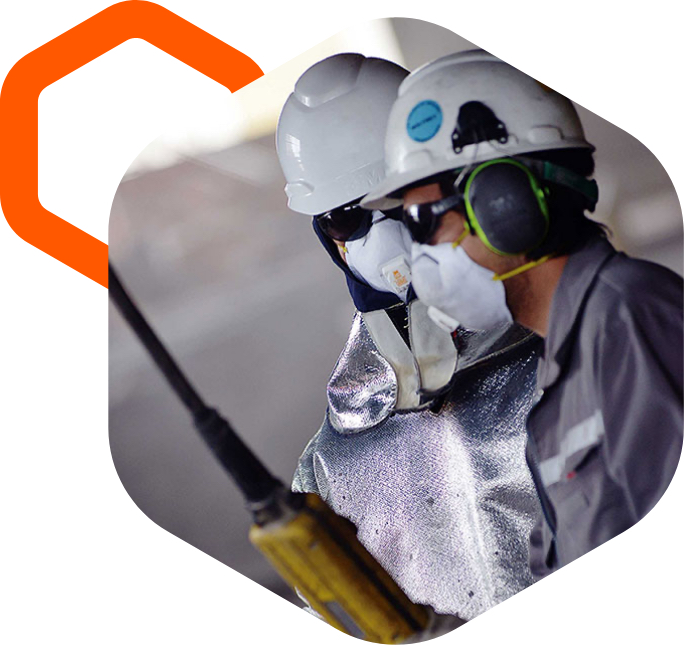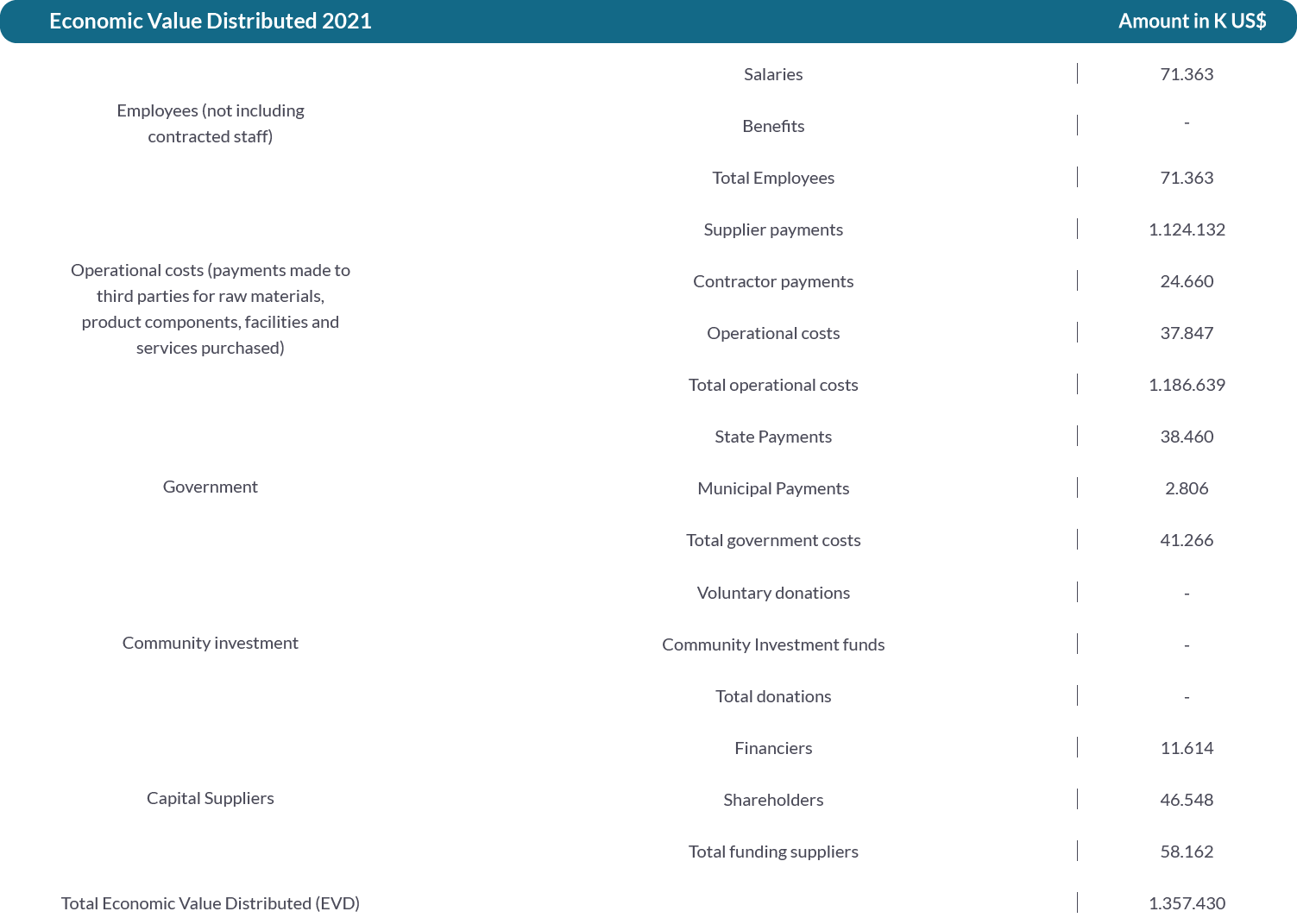1. Business Lines
We purchase molybdenum concentrates (molybdenite) and use our processing technology to produce a wide range of molybdenum products like molybdenum oxide or pure products.
Through our roasting and oxidation processes we recover byproducts like rhenium, copper cathodes and sulfuric acid.
We do business with several mining companies who send molybdenite to us. For a tolling fee, we transform the raw concentrates into molybdenum oxide and send them back as marketable products.
2. Products
Our Molybdenum (Mo) and Rhenium (Re) products are used by customers in steel. metallurgical, aerospace, chemical, electronic and medical device industries.
Oxide, ferromolyndenum, molybdenum sheets and others products.
Rhenium metal- powder and briquettes.
Cooper Cements and sulfuric acid.
3. Market
Our leadership in the international market sustains our competitive sales. It is achieved through our operational management, the highest standards of technology and efficiency and a wide profile of products and services focused on solutions for our mining, industrial and rhenium clients. In this way, our worldwide productive and commercial presence enables us to offer the best integrations for diverse markets, suppliers and customers.

4. Diversification
We want to continue investing in our industry to develop new markets and grow our company. To this end, we have developed specific criteria for the analysis of collaborative, joint or investment projects and also for the acquisition or licensing of new technologies.
The criteria for collaboration and investment are:
- Business in the area of chemistry, metallurgy and material sciences
- Significant market position in one or more niches
- Needs of our existing customer base
- EBITDA
Criteria for acquisition or licensing of new technologies:
- Process development and/or optimization
- New products for our target markets
- Technologies that are at laboratory and/or pilot plant level that need industrial scale-up
We have created an indicator to measure our level of diversification over the coming years. For more details, see Chapter 3
5. Productive processes
Across our industrial plants we have complex processes which have been developed mainly through our own internal company know how. In general terms, molybdenite (MoS2) and technical molybdenum oxide (mainly MoO3) are processed and later transformed into different grades of purity of molybdenum trioxide and other products as per customer demand.As part of this process rhenium content is recovered as a byproduct and we additionally recover other byproducts like sulfuric acid, copper cathodes and copper cement.
Molybdenum concentrate is processed in the Roasting Plant: the chemical element molybdenite (MoS₂), is obtained as a byproduct of copper.
The roasting process generates a stream of combustion gases that also contain fine solids which are sent for treatment at the Gas Cleaning Plant.
The gases resulting from the Gas Cleaning Plant are transferred to the Acid Plant where SO₂ is transformed into sulfuric acid (H₂SO₄) in order to obtain a gas compatible with the environment which respects and complies with the standards of the current regulations
This process generates products like technical molybdenum oxide where, depending on their composition, impurities like copper and iron can be removed in the leaching plant
Certain molybdenum concentrates are treated hydro-metallurgically through an oxidation and cleaning process to get the best purity
Through a pyrometallurgical process of molybdenum oxide and iron, the alloy ferromolybdenum (FeMo) is obtained.
The FeMo crushing with different granulometries is packaged in drums and maxi sacks for commercialization. The slag heap is stored and later goes through a process of metallurgical recovery and the remnants are finally disposed.


